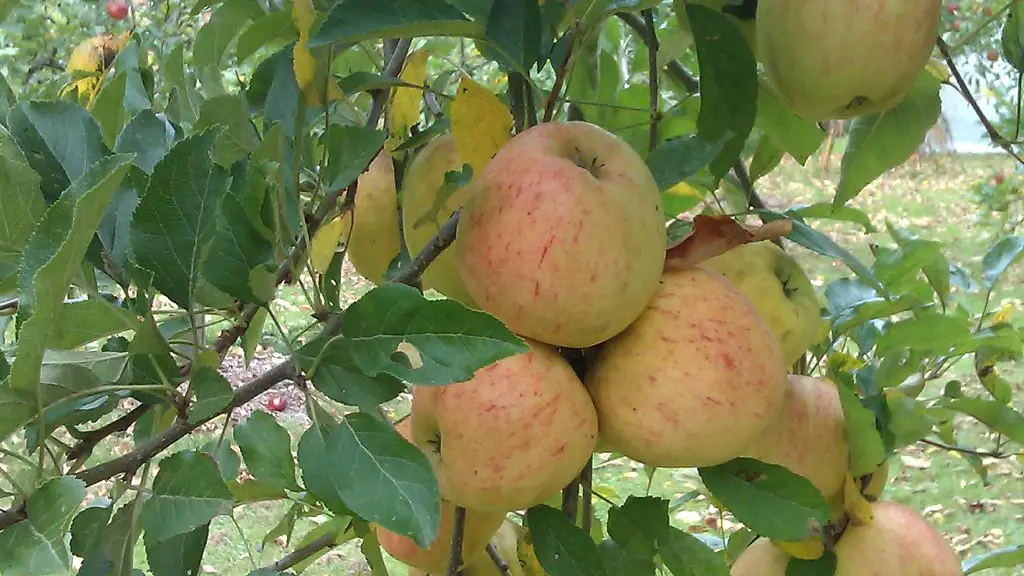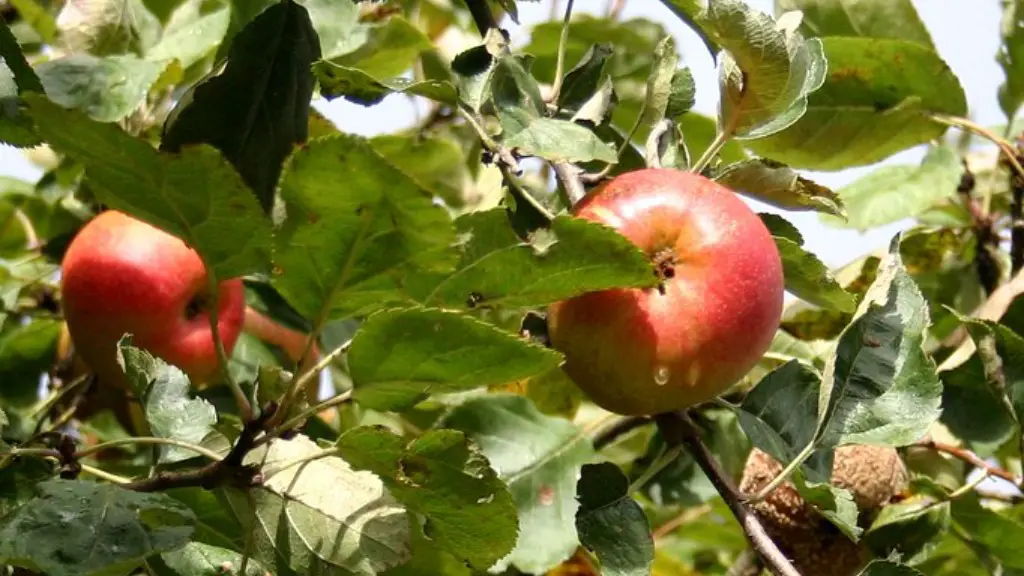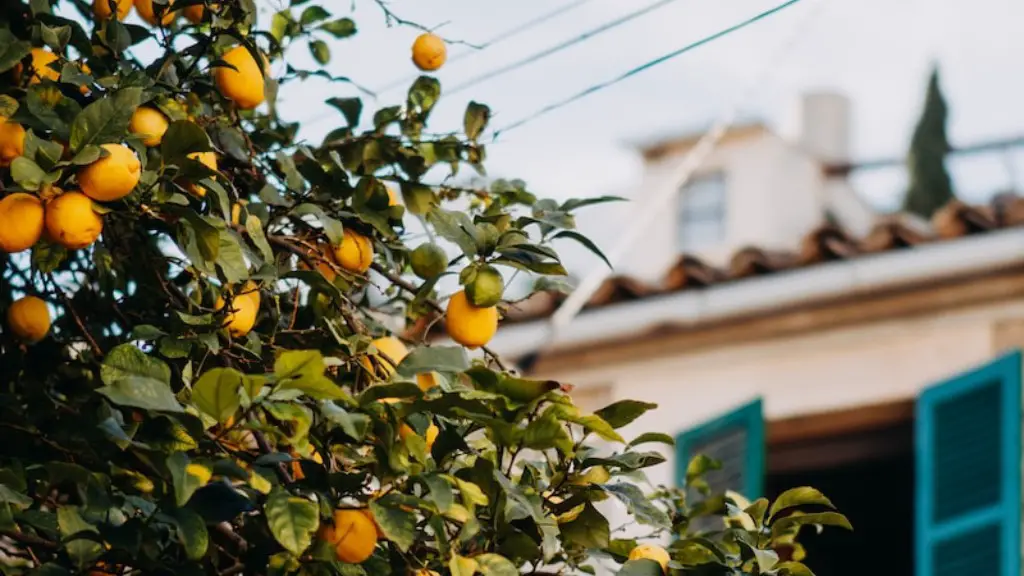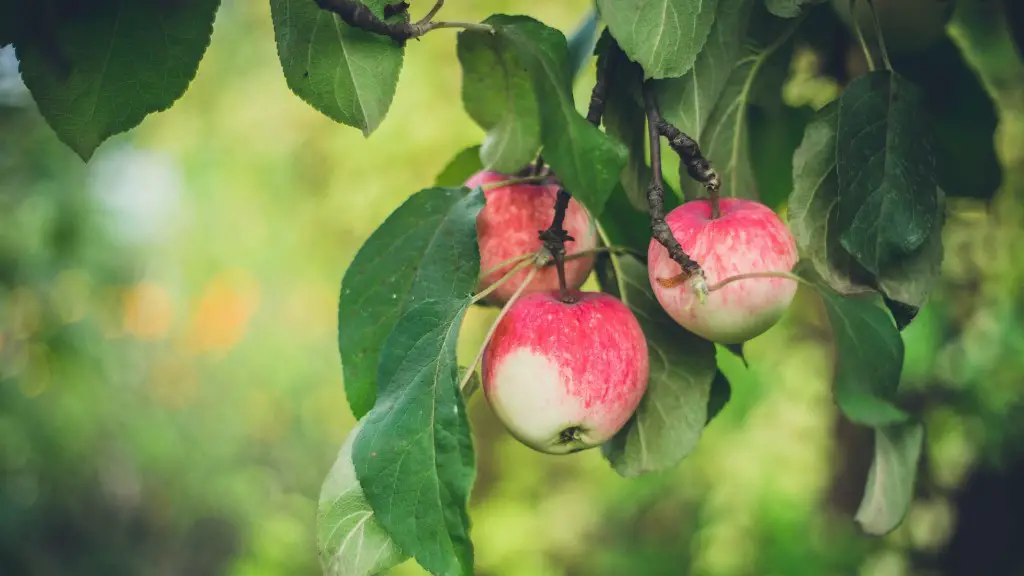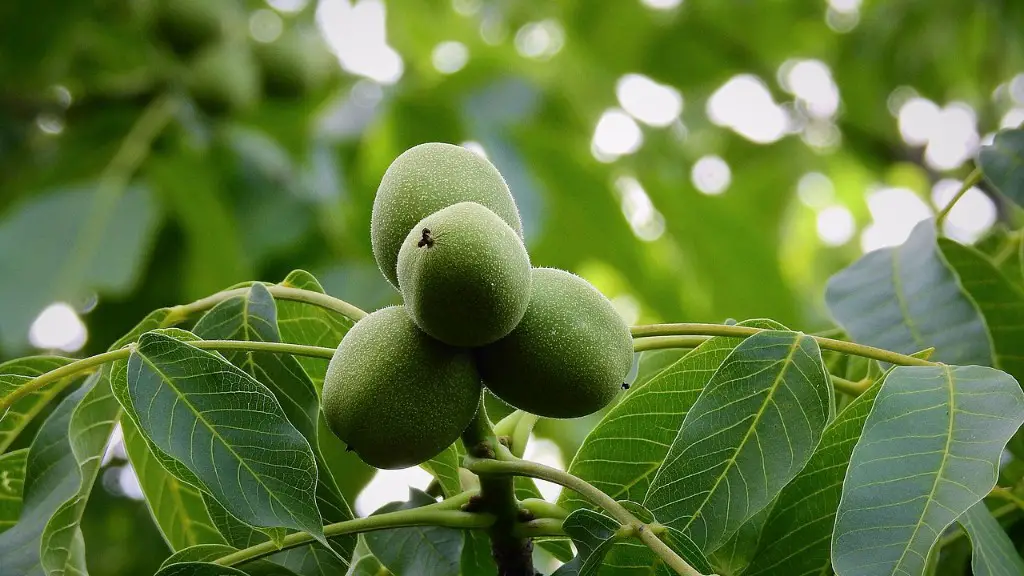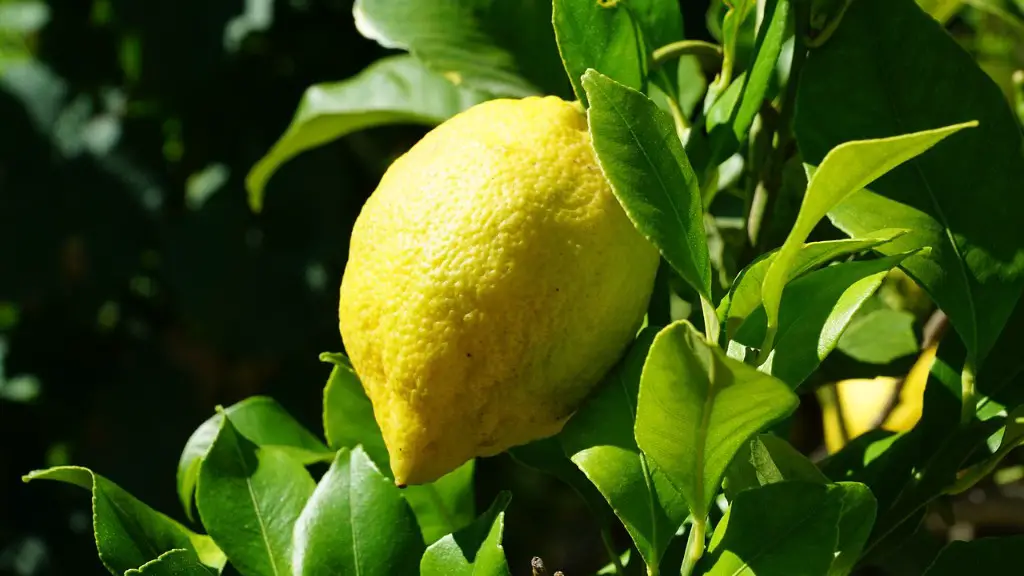Apples are a common fruit found on trees all around the world. While apples are a popular choice for eating, their life span on the tree outside is short. They eventually rot away, and the cause has been determined to be a variety of factors. This article seeks to discuss the reasons why apples rot on trees, ultimately including oxidation, increased humidity, and pests.
First, apples are susceptible to oxidation which can occur when they come in contact with oxygen. Apples produce a type of enzyme called polyphenol oxidase as part of their ripening process. Once the apple is exposed to oxygen, this enzyme catalyzes the oxidation process which in turn will cause the apple to brown and eventually rot. For example, when an apple is cut, the exposed inner flesh becomes susceptible to oxidation.
Secondly, apples rot due to an increased level of humidity. When an apple is exposed to high humidity, the apple will retain some of the water molecules. As water molecules are absorbed into the apple, they disrupt the apple’s cellular structure and cause it to rot. Additionally, humidity may also provide a hospitable environment for bacteria and fungi to grow, which in turn will also cause apples to rot.
Thirdly, apples may rot due to the presence of pests. Infestations of insects and other animals, such as mice and birds, can cause an apple to rot. These pests can bite and peck the fruit, damaging its outer shell and leading the apple to rot quicker than usual. In some cases, pests can also bring about fungal and bacterial diseases which accelerate the rotting process.
Lastly, apples may rot from the inside due to ethylene. Ethylene is a gas produced by apples when they reach the stage of full ripeness. By producing this gas, it will cause the apple’s cells to break down, ultimately leading to rot. This is especially common in closed areas, where the ethylene produced by the apples is concentrated and will cause premature rotting.
Overripe Apples
Overripe apples cause several problems. For starters, they may acquire nasty odors and can attract pests and other animals. Overripe apples are also likely to become mushy, making them unsuitable for eating. Furthermore, due to the high levels of rot, they may become inedible and difficult to dispose of. This can create a serious issue with sanitation, as it often leads to bacteria and fungi forming and spreading.
Fruit flies and rot may also occur in overly ripe apples. As the fruit begins to spoil, its interior may turn brown and become soft. The smell may also change, making it more attractive to a number of animals. Another problem these overly ripe apples often have is that maggots may appear in them. The presence of these creatures can cause a lot of distress, and make the already rotten fruits even more inedible.
Overripe apples can also cause a malodour to be released. This can attract a variety of pests and other animals, such as certain types of bird. In case a large number of these animals gather in one spot, they may cause serious damages to young trees or fruits that are still ripe. Fences and nets can help protect the trees.
In order to prevent apples from rotting, growers and farmers should take steps to monitor their trees and ensure that they are regularly checked for signs of rot. Crop rotation can also be practiced to reduce the risk of an infection which can lead to pests infesting the trees and cause rot. Additionally, pruning can keep the number of apples to a minimum, thus reducing the possibility of over-ripeness.
Fungi and Bacteria
Fungi and bacteria are some of the most common causes of apple rot. These microorganisms can enter into the apple’s skin and cause it to rot from the inside. Common fungi and bacteria which produce rotted apples include anthracnose, Phytophthora, and other types of mold. These organisms can also spread to other apples if left unchecked, thus resulting in a larger infestation.
Aside from the fungi and bacteria, other living organisms such as viruses and insects can also cause apple rot. Common pests that can cause apple rot include aphids, weevils, and fruitflies. These pests can lead to infestations which can cause the apple to rot at a faster rate. Furthermore, they may also introduce fungal diseases and even carry bacteria that can lead to rotting.
Rot caused by fungi and bacteria can be difficult to control. Some of the most effective control measures include using and combining biological, chemical, and cultural control methods. Additionally, good agricultural and storage practices such as proper crop rotation, correct pruning, and good hygiene should be implemented in order to reduce the risk of infection.
In general, apple rot can be prevented by following good agricultural and storage practices. It is also important to keep a regular check for signs of rot, and to take steps to reduce the occurrence of pests, such as implementing crop rotation and pruning. In case fungi and bacteria are discovered, control methods should be implemented immediately in order to prevent further damage.
Chemical Treatments
Chemical treatments can be used to reduce the likelihood of apple rot. The most commonly employed chemical treatments are fungicides and insecticides. These chemicals are formulated so that they can target and destroy the microorganisms which cause the rot. They are also effective against the pests which cause the apple to rot.
In most cases, fungicides should be applied before the apple has started to rot. This will help to prevent further infection by the microorganisms. Insecticides should also be applied to the tree if the presence of certain pests, such as fruitflies and weevils, are detected. The use of chemical treatments should only be done sparingly, however, as the chemicals may have side effects.
Aside from chemical treatments, other management practices can also be employed. For example, monitoring, early detection, and proper disposal all go a long way in preventing apple rot. Moreover, providing proper shelter, including nets and other forms of protection, can help reduce the risk of pests and other animals infesting the apples.
Good agricultural and storage practices are also important in preventing apple rot. Having proper equipment, good pruning and crop rotation techniques, and good hygiene can help ensure apples keep well. Furthermore, they should be stored in a cool and dry place, to prevent the growth of microorganisms.
Storing Apples
Storing apples correctly can prevent them from rotting quickly. The most important factor here is temperature. Apples should be kept at a temperature of between 32 and 45 degrees Fahrenheit. The ideal temperature will depend on the type of apple, so farmers and growers should be aware of this. Additionally, apples should be stored in a cool, dark place away from direct sunlight, and the air inside should be kept well-circulated.
Furthermore, apples should be stored with other fruits and vegetables, as this will help maintain a suitable temperature. Apples should also be kept in proper storage containers, with smaller apples being kept in baskets to protect them from being crushed by other fruits and vegetables. Finally, apples should be inspected regularly to check for signs of rot.
In conclusion, there are numerous reasons why apples may rot on trees. Oxidation, increased levels of humidity, pests and the production of ethylene are some of the most common causes. To prevent apple rot, growers and farmers should implement good agricultural and storage practices, as well as making use of various treatments, such as chemical treatments and storing apples correctly.
